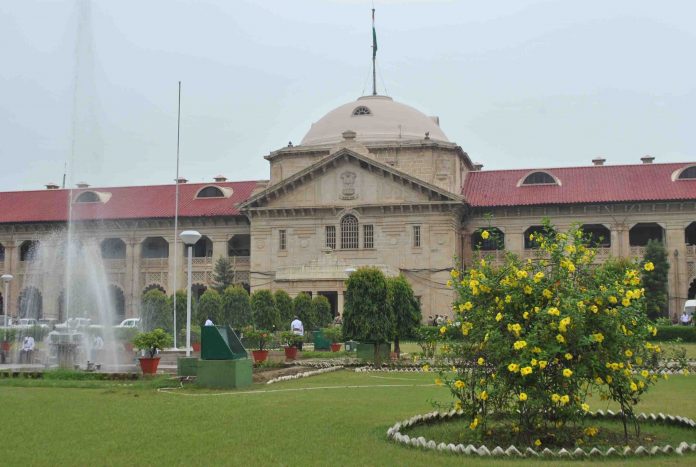The Allahabad High Court on Wednesday had dismissed Multiple Writ Petitions challenging the amendment to Regulations made under U.P. Intermediate Education Act, 1921 which is violative of Article 29 of the Constitution.
The challenge was made by the petitioners to the amendment made in Regulation-17, Chapter-II of Regulations framed under U.P. Intermediate Education Act, 1921 published in Official Gazette and the subsequent Government order for the said amendment.
The case of the petitioners is that under the amended provision, selection of teaching staff is now to be made by a Private Agency through Joint Director of Education or District Inspector of Schools and five names for each vacancy shall be recommended to the College, who will conduct interview and thereafter appointment will be made. It is said that this interference in the right of appointment of teaching staff is violative of Section 16-FF of Act, 1921 read with Article 29 of Constitution of India.
The Government before the Court said Regulation 17, Chapter-II of Act, 1921, as has been amended, do not override authority of Management; it is not inconsistent to the rights conferred by Article 29 and 30 of Constitution of India; Managements still has right to select candidates and only for the betterment of Educational Institutions and having competent staff, procedure for screening has been provided by conducting written test through a private agency but it does not affect rights of Management in any manner; it is only for the purpose of making selection process transparent; no absolute power of selection has been given to Educational Authorities or a private agency but power of selection still vests in the Management and the procedure is only to regulate better quality of education and to maintain transparency in selection; there is no interference by State Government in the selection of candidates; amendment does not affect authority of Management, and, instead, procedure is to make the things convenient and transparent.
The government further said that Necessity to amend Regulation 17(1)(D), Chapter-II of Regulations, arose in order to maintain transparency in the procedure relating to appointment of Teachers and Principals in the Government aided Institutions and to avoid any scope of bias and personal interest on the part of Management. Government received various complaints of favoritism, partiality and other illegalities in the matter of selection and appointment of Teachers in Government aided minority institutions and to remove such eventualities and to ensure appointment of more qualified Teachers and Principals, to make the process of selection free of whims of Management and the amendment is only regulatory in nature.
The Case was heard by the division bench comprising of Justice Sudhir Agrawal & Justice Rajeev Misra who observed that, “In the amendment only element of open test in the form of written test has been introduced, which will determine merit of the candidates. Further scope of subjective element of selection, when the selection was made only on the basis of interview, has been curtailed to a larger extent. This amendment is for bringing in transparency, impartiality, fairness and non-arbitrariness in selection and it is in the interest of public at large, students’ community and national interest. In selection and appointment, no Government Authority has any direct role except that it has to forward papers from one to another. Even for recruitment i.e. holding of Screening/Written Test, no Government Machinery has been given any power of interference but a private recruitment agency has to be employed.”
The High Court while dismissing the writ petitions said that it is not in dispute that all the educational institution before this Court are 100 percent Government aided minority educational institutions and therefore, in view of the law laid down by Supreme Court, it cannot be said that statutory provision in question, in any manner, affects their right to administer minority institution and it cannot be said to be violative of Article 30 of the Constitution.
Thus, the writ petitions were dismissed.
-India Legal Bureau


